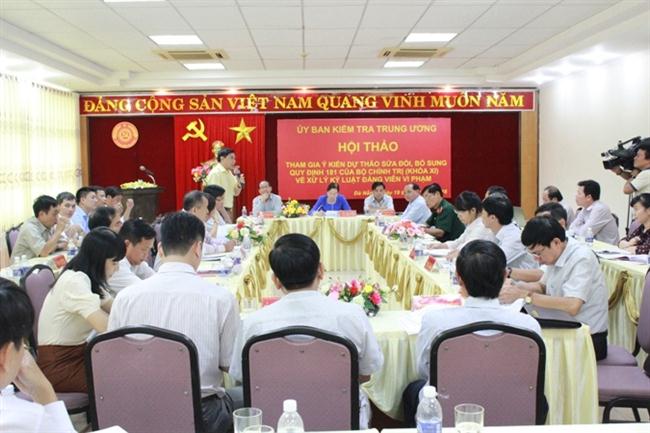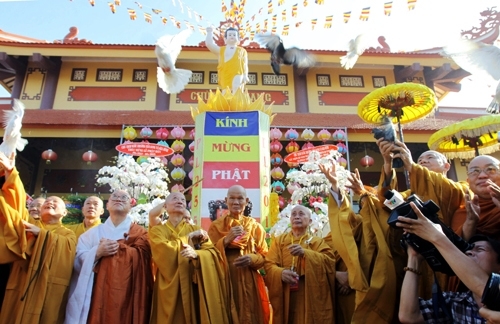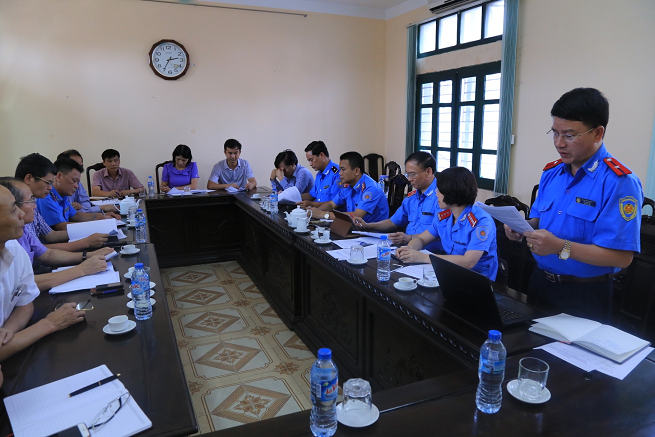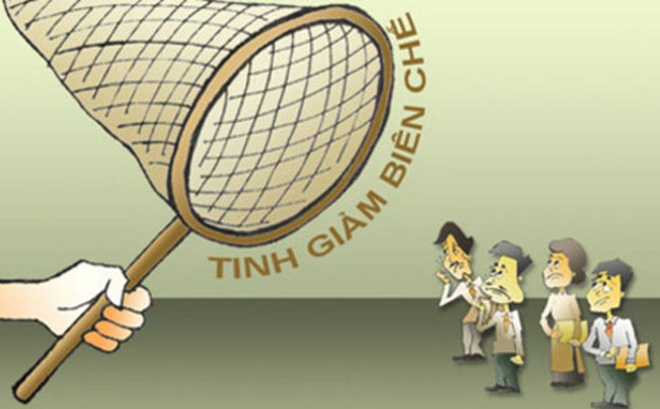On November 21, 2016, the Central Inspection Commission (UBKT) issued Guideline 01-HDUBKTTW on the implementation of certain provisions in Regulation 30/QD/TW regarding the execution of Chapter VII and Chapter VIII of the Communist Party's Charter on inspection, supervision, and disciplinary work within the Communist Party.
Implementation of complaint resolution and disciplinary appeal resolution within the party when truly necessary
Resolution of complaints, resolution of disciplinary appeals within the party, and carrying out inspection tasks when truly necessary are conducted when:
- Party organizations or party members show signs of violations in complex, sensitive, important areas or involve multiple levels, multiple sectors; the standing committee of the party committee or the party committee managing those party members, party organizations decides to inspect when there are signs of violation.- The party cell has the authority to inspect party members when there are signs of violations in performing the tasks assigned by the party cell, the tasks of the party member (excluding tasks assigned by a higher level) and signs of violations in ethics and lifestyle.
Supervision of party members in carrying out the tasks of party members of the party cell:
- The party cell conducts regular supervision; the party cell has a party committee, and party members operate dispersedly, then specialized supervision is conducted;- The party cell does not supervise party members carrying out tasks assigned by a higher level (unless authorized).
Written exchange with higher-level Inspection Commission before changing inspection commission members
In Clause 2, Article 31 of Regulation 30, members of the inspection commission and the chairman, deputy chairman of the lower-level inspection commission must be approved by the direct higher-level party committee. If the chairman of the inspection commission is transferred to another work, it must be agreed by the direct higher-level party committee.
In addition to changing the chairman of the inspection commission as per the Communist Party's regulations, when changing the deputy chairman or members of the inspection commission, the lower-level party committee or the standing committee of the lower-level party committee must consult with the direct higher-level inspection commission before implementation. The consultation must be conducted in writing. Within 10 working days from receiving the document, the direct higher-level Inspection Commission must respond in writing. If the period expires without a response, it is considered to be agreed.
Authority to inspect when there are signs of violations
The standing committee of the inspection commission or the inspection commission (where there is no standing committee of the inspection commission) has the authority to decide to inspect when there are signs of violations by party members or lower-level party organizations. Specifically:
- During the inspection process when there are signs of violations, if the inspected entity is accused, the standing committee of the inspection commission or the inspection commission considers and decides to combine the accusations into an additional inspection content and report them together at the conclusion of the inspection (for inspections by the standing committee of the party committee, the same implementation applies).- Notification content to the whistleblower about the results of the accusation resolution is excerpted from the inspection conclusion (only the concluded accusations) by the authorized party organization.
Authority and principles of accusation resolution
In cases where the whistleblower wishes to withdraw the accusation, the party organization resolving the accusation does not consider and resolve that accusation unless it involves threats, coercion, or bribery.
- The whistleblower perceives the accusation as incorrect or no longer appropriate and may withdraw part or all of the accusation;- The party organization acknowledges the voluntariness of the whistleblower in withdrawing part or all of the accusation or withdrawing the accusation letter, and if there are grounds, accepts the conclusion of part or the entire accusation resolution (a record must be established with the whistleblower's signature).
If the whistleblower withdraws the accusation letter but if the accusations appear credible, the party organization should study and review them in conjunction with other sources of information to facilitate inspection.
- If it is confirmed that the whistleblower was coerced, threatened, or bribed, the authorized party organization continues to resolve the accusation and must take measures or request relevant authorities to protect the whistleblower.- During the resolution process, if the whistleblower is found to be bribed, the authorized party organization considers, decides to inspect, or transfers the case to the relevant authorities for review and handling of both the bribed whistleblower and the briber.- During the resolution of the accusation, if other signs of violation are found, the process is shifted to inspection procedures for signs of violations (additional members may be added or a new inspection team constituted), including the accusations as part of the general inspection content.

Scope of complaint resolution
The resolution of complaints about violations, disciplinary forms in disciplinary decisions, and principles, procedures, processes, authority to enforce discipline, which the disciplined party members complain about. Specifically:
- Only resolve complaints about violations of content, form of discipline, principles, procedures, process, and authority to enforce discipline; cases of complaints that are beyond the scope, responsibility, and authority to resolve should be transferred to relevant authorities for processing.- When complained, the content, nature, extent, harm, cause of violation, and mitigating or aggravating circumstances compared to the decided disciplinary form must be clearly determined to ensure non-distraction in decision-making.- If the disciplinary action is deemed unauthorized, the party organization resolving the complaint requests the party organization that decided on the discipline to annul the disciplinary decision and recommend that the authorized party organization review and discipline according to regulations.- In cases of both complaints and accusations, the party organization resolves only the complaint content and guides the complainant in exercising their right to accuse according to regulations.- During the resolution process, if the party member voluntarily withdraws the complaint letter, the authorized party organization considers withdrawing the complaint letter and concluding the resolution (a record with the complainant's signature is required).- Within 30 working days from the announcement of the disciplinary decision or the decision to resolve the disciplinary complaint, the party organization managing the disciplined party member does not yet transfer official party activities to that member (if a transfer arises).
Expulsion from the Communist Party if a party member is sentenced from non-custodial reform upwards
If a party member is sentenced to a penalty lower than non-custodial reform, the party organization bases the content, nature, extent, harm, cause of violation, and mitigating or aggravating circumstances to consider and handle the discipline appropriately, including expulsion.
A Communist Party member disciplined by demotion cannot be elected into the party committee or appointed to equivalent or higher positions within a year from the date of decision.
After a year from the announcement of the disciplinary decision or the decision to resolve the disciplinary complaint (except for expulsion decisions), if the party member does not file a complaint, does not re-offend, or does not have new violations requiring disciplinary action, the disciplinary decision automatically ceases to be effective.
- During the period of enforcing the disciplinary decision or the decision to resolve the disciplinary complaint, if the party member files a complaint, the cessation period for the disciplinary action is calculated as one year from the date of the final decision announcement regarding the disciplinary complaint for that party member.- One year is calculated by month (full 12 months).
 Article table of contents
Article table of contents
![[InfoGraphic] 6 forms of discipline for officials and public employees under Decree 71/2016/ND-CP](https://cdn.lawnet.vn//uploads/NewsThumbnail/2016/07/12/1319291-01.png)




.Medium.png)
.Medium.png)
.Medium.png)
.Medium.png)
